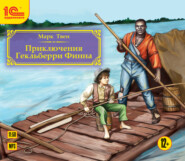По всем вопросам обращайтесь на: info@litportal.ru
(©) 2003-2025.
✖
Mark Twain's Speeches
Настройки чтения
Размер шрифта
Высота строк
Поля
Of course, the practice of medicine and surgery in a remote country district has its disadvantages, but in my case I am happy in a division of responsibility. I practise in conjunction with a horse-doctor, a sexton, and an undertaker. The combination is air-tight, and once a man is stricken in our district escape is impossible for him.
These four of us – three in the regular profession and the fourth an undertaker – are all good men. There is Bill Ferguson, the Redding undertaker. Bill is there in every respect. He is a little lukewarm on general practice, and writes his name with a rubber stamp. Like my old Southern, friend, he is one of the finest planters anywhere.
Then there is Jim Ruggles, the horse-doctor. Ruggles is one of the best men I have got. He also is not much on general medicine, but he is a fine horse-doctor. Ferguson doesn’t make any money off him.
You see, the combination started this way. When I got up to Redding and had become a doctor, I looked around to see what my chances were for aiding in, the great work. The first thing I did was to determine what manner of doctor I was to be. Being a Connecticut farmer, I naturally consulted my farmacopia, and at once decided to become a farmeopath.
Then I got circulating about, and got in touch with Ferguson and Ruggles. Ferguson joined readily in my ideas, but Ruggles kept saying that, while it was all right for an undertaker to get aboard, he couldn’t see where it helped horses.
Well, we started to find out what was the trouble with the community, and it didn’t take long to find out that there was just one disease, and that was race-suicide. And driving about the country-side I was told by my fellow-farmers that it was the only rational human and valuable disease. But it is cutting into our profits so that we’ll either have to stop it or we’ll have to move.
We’ve had some funny experiences up there in Redding. Not long ago a fellow came along with a rolling gait and a distressed face. We asked him what was the matter. We always hold consultations on every case, as there isn’t business enough for four. He said he didn’t know, but that he was a sailor, and perhaps that might help us to give a diagnosis. We treated him for that, and I never saw a man die more peacefully.
That same afternoon my dog Tige treed an African gentleman. We chained up the dog, and then the gentleman came down and said he had appendicitis. We asked him if he wanted to be cut open, and he said yes, that he’d like to know if there was anything in it. So we cut him open and found nothing in him but darkness. So we diagnosed his case as infidelity, because he was dark inside. Tige is a very clever dog, and aids us greatly.
The other day a patient came to me and inquired if I was old Doctor Clemens—
As a practitioner I have given a great deal of my attention to Bright’s disease. I have made some rules for treating it that may be valuable. Listen:
Rule 1. When approaching the bedside of one whom an all-wise President – I mean an all-wise Providence – well, anyway, it’s the same thing – has seen fit to afflict with disease – well, the rule is simple, even if it is old-fashioned.
Rule 2. I’ve forgotten just what it is, but—
Rule 3. This is always indispensable: Bleed your patient.
Missouri University Speech
Address delivered June 4, 1902, at Columbia, Mo.
When the name of Samuel L. Clemens was called the humorist stepped forward, put his hand to his hair, and apparently hesitated. There was a dead silence for a moment. Suddenly the entire audience rose and stood in silence. Some one began to spell out the word Missouri with an interval between the letters. All joined in. Then the house again became silent. Mr. Clemens broke the spell:
As you are all standing [he drawled in his characteristic voice], I guess, I suppose I had better stand too.
[Then came a laugh and loud cries for a speech. As the great humorist spoke of his recent visit to Hannibal, his old home, his voice trembled.]
You cannot know what a strain it was on my emotions [he said]. In fact, when I found myself shaking hands with persons I had not seen for fifty years and looking into wrinkled faces that were so young and joyous when I last saw them, I experienced emotions that I had never expected, and did not know were in me. I was profoundly moved anal saddened to think that this was the last time, perhaps, that I would ever behold those kind old faces and dear old scenes of childhood.
[The humorist then changed to a lighter mood, and for a time the audience was in a continual roar of laughter. He was particularly amused at the eulogy on himself read by Gardiner Lathrop in conferring the degree.] He has a fine opportunity to distinguish himself [said Mr. Clemens] by telling the truth about me.
I have seen it stated in print that as a boy I had been guilty of stealing peaches, apples, and watermelons. I read a story to this effect very closely not long ago, and I was convinced of one thing, which was that the man who wrote it was of the opinion that it was wrong to steal, and that I had not acted right in doing so. I wish now, however, to make an honest statement, which is that I do not believe, in all my checkered career, I stole a ton of peaches.
One night I stole – I mean I removed – a watermelon from a wagon while the owner was attending to another customer. I crawled off to a secluded spot, where I found that it was green. It was the greenest melon in the Mississippi Valley. Then I began to reflect. I began to be sorry. I wondered what George Washington would have done had he been in my place. I thought a long time, and then suddenly felt that strange feeling which comes to a man with a good resolution, and I took up that watermelon and took it back to its owner. I handed him the watermelon and told him to reform. He took my lecture much to heart, and, when he gave me a good one in place of the green melon, I forgave him.
I told him that I would still be a customer of his, and that I cherished no ill-feeling because of the incident – that would remain green in my memory.
Business
The alumni of Eastman College gave their annual banquet, March 30, 1901, at the Y. M. C. A. Building. Mr. James G. Cannon, of the Fourth National Bank, made the first speech of the evening, after which Mr. Clemens was introduced by Mr. Bailey as the personal friend of Tom Sawyer, who was one of the types of successful business men.
Mr. Cannon has furnished me with texts enough to last as slow a speaker as myself all the rest of the night. I took exception to the introducing of Mr. Cannon as a great financier, as if he were the only great financier present. I am a financier. But my methods are not the same as Mr. Cannon’s.
I cannot say that I have turned out the great business man that I thought I was when I began life. But I am comparatively young yet, and may learn. I am rather inclined to believe that what troubled me was that I got the big-head early in the game. I want to explain to you a few points of difference between the principles of business as I see them and those that Mr. Cannon believes in.
He says that the primary rule of business success is loyalty to your employer. That’s all right – as a theory. What is the matter with loyalty to yourself? As nearly as I can understand Mr. Cannon’s methods, there is one great drawback to them. He wants you to work a great deal. Diligence is a good thing, but taking things easy is much more-restful. My idea is that the employer should be the busy man, and the employee the idle one. The employer should be the worried man, and the employee the happy one. And why not? He gets the salary. My plan is to get another man to do the work for me. In that there’s more repose. What I want is repose first, last, and all the time.
Mr. Cannon says that there are three cardinal rules of business success; they are diligence, honesty, and truthfulness. Well, diligence is all right. Let it go as a theory. Honesty is the best policy – when there is money in it. But truthfulness is one of the most dangerous – why, this man is misleading you.
I had an experience to-day with my wife which illustrates this. I was acknowledging a belated invitation to another dinner for this evening, which seemed to have been sent about ten days ago. It only reached me this morning. I was mortified at the discourtesy into which I had been brought by this delay, and wondered what was being thought of me by my hosts. As I had accepted your invitation, of course I had to send regrets to my other friends.
When I started to write this note my wife came up and stood looking over my shoulder. Women always want to know what is going on. Said she “Should not that read in the third person?” I conceded that it should, put aside what I was writing, and commenced over again. That seemed to satisfy her, and so she sat down and let me proceed. I then – finished my first note – and so sent what I intended. I never could have done this if I had let my wife know the truth about it. Here is what I wrote:
To the Ohio society, – I have at this moment received a most kind invitation (eleven days old) from Mr. Southard, president; and a like one (ten days old) from Mr. Bryant, president of the Press Club. I thank the society cordially for the compliment of these invitations, although I am booked elsewhere and cannot come.
But, oh, I should like to know the name of the Lightning Express by which they were forwarded; for I owe a friend a dozen chickens, and I believe it will be cheaper to send eggs instead, and let them develop on the road.
Sincerely yours,
Mark Twain.
I want to tell you of some of my experiences in business, and then I will be in a position to lay down one general rule for the guidance of those who want to succeed in business. My first effort was about twenty-five years ago. I took hold of an invention – I don’t know now what it was all about, but some one came to me tend told me it was a good thing, and that there was lots of money in it. He persuaded me to invest $15,000, and I lived up to my beliefs by engaging a man to develop it. To make a long story short, I sunk $40,000 in it.
Then I took up the publication of a book. I called in a publisher and said to him: “I want you to publish this book along lines which I shall lay down. I am the employer, and you are the employee. I am going to show them some new kinks in the publishing business. And I want you to draw on me for money as you go along,” which he did. He drew on me for $56,000. Then I asked him to take the book and call it off. But he refused to do that.
My next venture was with a machine for doing something or other. I knew less about that than I did about the invention. But I sunk $170,000 in the business, and I can’t for the life of me recollect what it was the machine was to do.
I was still undismayed. You see, one of the strong points about my business life was that I never gave up. I undertook to publish General Grant’s book, and made $140,000 in six months. My axiom is, to succeed in business: avoid my example.
Carnegie The Benefactor
At the dinner given in honor of Andrew Carnegie by the Lotos Club, March 17, 1909, Mr. Clemens appeared in a white suit from head to feet. He wore a white double-breasted coat, white trousers, and white shoes. The only relief was a big black cigar, which he confidentially informed the company was not from his usual stack bought at $3 per barrel.
The State of Missouri has for its coat of arms a barrel-head with two Missourians, one on each side of it, and mark the motto—“United We Stand, Divided We Fall.” Mr. Carnegie, this evening, has suffered from compliments. It is interesting to hear what people will say about a man. Why, at the banquet given by this club in my honor, Mr. Carnegie had the inspiration for which the club is now honoring him. If Dunfermline contributed so much to the United States in contributing Mr. Carnegie, what would have happened if all Scotland had turned out? These Dunfermline folk have acquired advantages in coming to America.
Doctor McKelway paid the top compliment, the cumulation, when he said of Mr. Carnegie:
“There is a man who wants to pay more taxes than he is charged.” Richard Watson Gilder did very well for a poet. He advertised his magazine. He spoke of hiring Mr. Carnegie – the next thing he will be trying to hire me.
If I undertook – to pay compliments I would do it stronger than any others have done it, for what Mr. Carnegie wants are strong compliments. Now, the other side of seventy, I have preserved, as my chiefest virtue, modesty.
On Poetry, Veracity, And Suicide
Address at a dinner of the Manhattan Dickens fellowship, New York city, February 7, 1906
This dinner was in commemoration of the ninety-fourth anniversary of the birth of Charles Dickens. On an other occasion Mr. Clemens told the same story with variations and a different conclusion to the University Settlement Society.
I always had taken an interest in young people who wanted to become poets. I remember I was particularly interested in one budding poet when I was a reporter. His name was Butter.
One day he came to me and said, disconsolately, that he was going to commit suicide – he was tired of life, not being able to express his thoughts in poetic form. Butter asked me what I thought of the idea.

















